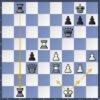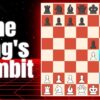Tennis enthusiasts are demanding a ban for a player following a shocking incident on the court that led to his immediate disqualification.
Alexander Donski, partnering with Siddhant Banthia, was competing in the ATP Challenger tournament in Barletta, Italy, when the incident occurred.



After winning a close match on Wednesday, Donski and Banthia faced the Italian team of Gianluca Cadenasso and Simone Agostini in the quarter-finals.
The Italian players won the first set 6-2.
The shocking moment happened later in the second set.
With Donski and Banthia leading 4-3, the game reached deuce on the Italians` serve, meaning a crucial point would decide the game.
The receiving team chose Donski to return the serve.
Donski`s forehand return went directly to the volleyer, giving Agostini an easy volley to win the point.
Unable to reach the ball before the second bounce, Donski saw the Italians level the set at 4-4.
In frustration, Donski aggressively hit the ball back over the net.
Unfortunately, the ball struck Agostini in the head at high speed.
Donski immediately apologized and checked on his injured opponent.
A physio was called to attend to Agostini, who remained standing but held his head in pain.
The supervisor and umpire had no choice but to disqualify Donski and Banthia due to Donski`s dangerous action.
Disqualification means the players lose their prize money and ranking points.
However, tennis fans on social media believe the disqualification isn`t enough punishment for Donski`s actions.
One fan commented that disqualification was too lenient and suspensions should be implemented to prevent such incidents. They noted the potential for serious injury to Agostini.
Another comment described it as one of the most deserved defaults of the year.
A third fan emphasized that playing professional tennis is a privilege and such behavior should not be tolerated.
They argued that stricter regulations are needed to control player behavior, including verbal conduct, to prevent escalation to physical actions. While acknowledging the emotional intensity of matches making self-control difficult, they stressed the need for rule enforcement.











